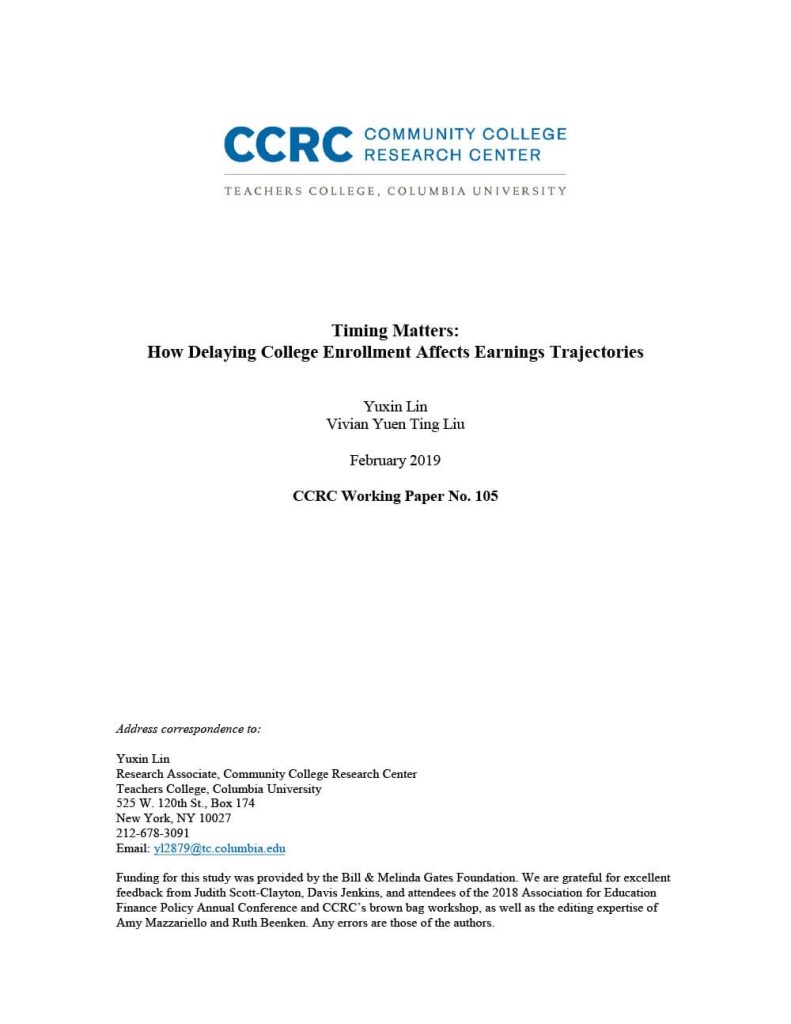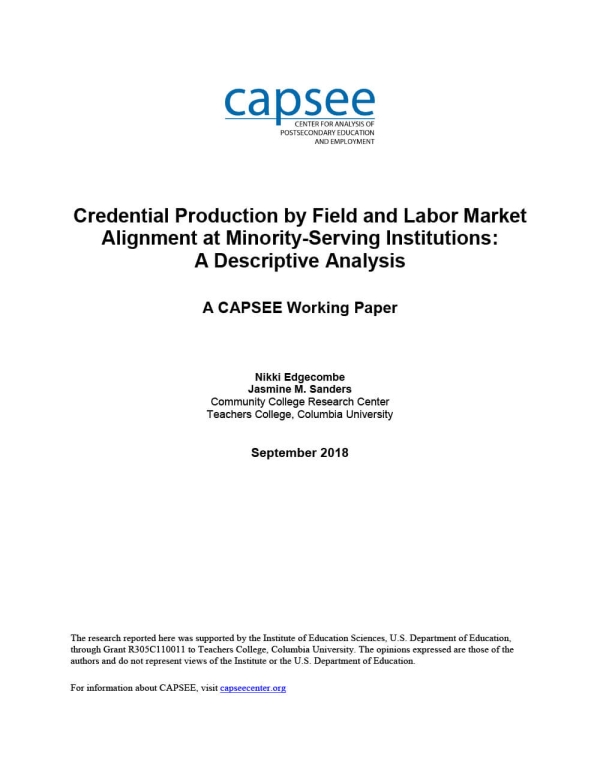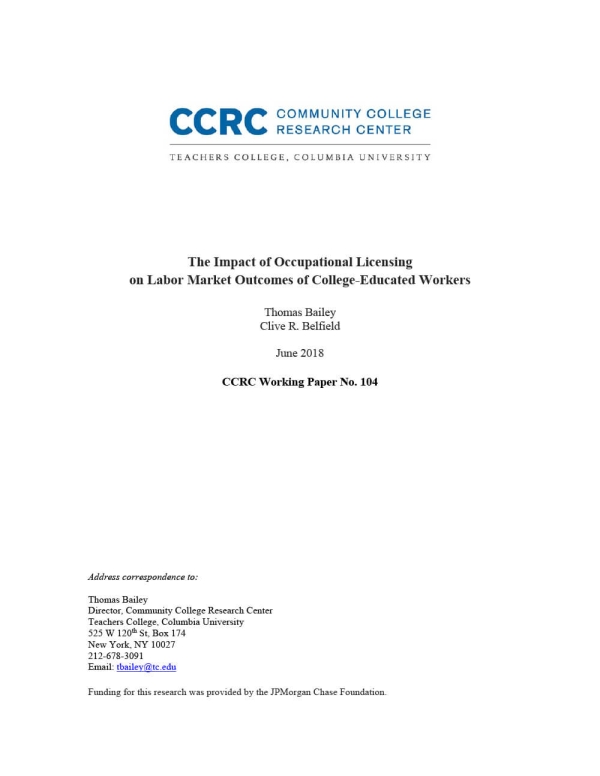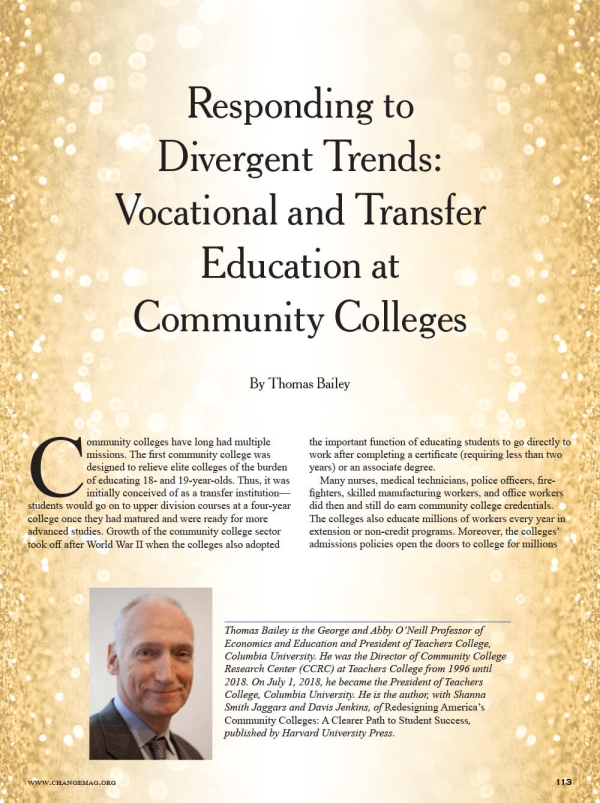Timing Matters: How Delaying College Enrollment Affects Earnings Trajectories

Using data from the National Longitudinal Survey of Youth 1997, this paper compares the academic and labor market outcomes of high school graduates who delay college enrollment and those who enroll in college immediately up to 13 years after high school completion.
Credential Production by Field and Labor Market Alignment at Minority-Serving Institutions: A Descriptive Analysis

This CAPSEE working paper compares credential production patterns of minority-serving institutions (MSIs) and non-MSIs by field of study and examines the extent to which they correspond to employment industry clusters in Alabama and California.
KCTCS Enhancing Programs for IT Certification (EPIC)

This report evaluates the implementation and impacts of Enhancing Programs for IT Certification (EPIC), a program that aims to expand access to computer and medical information technology credentials at six Kentucky community colleges.
The Impact of Occupational Licensing on Labor Market Outcomes of College-Educated Workers

This paper identifies the effects of licenses on a set of labor market outcomes for the college-educated workforce using newly available national Current Population Survey data merged with data from the U.S. Department of Labor on state-level, occupation-specific licensing requirements.
Responding to Divergent Trends: Vocational and Transfer Education at Community Colleges

In this article for Change: The Magazine for Higher Learning, CCRC Founding Director and Teachers College President Thomas Bailey outlines the tradeoff between degrees and short-term credentials offered to community college students and describes how the colleges themselves may be able to help resolve this conflict.
